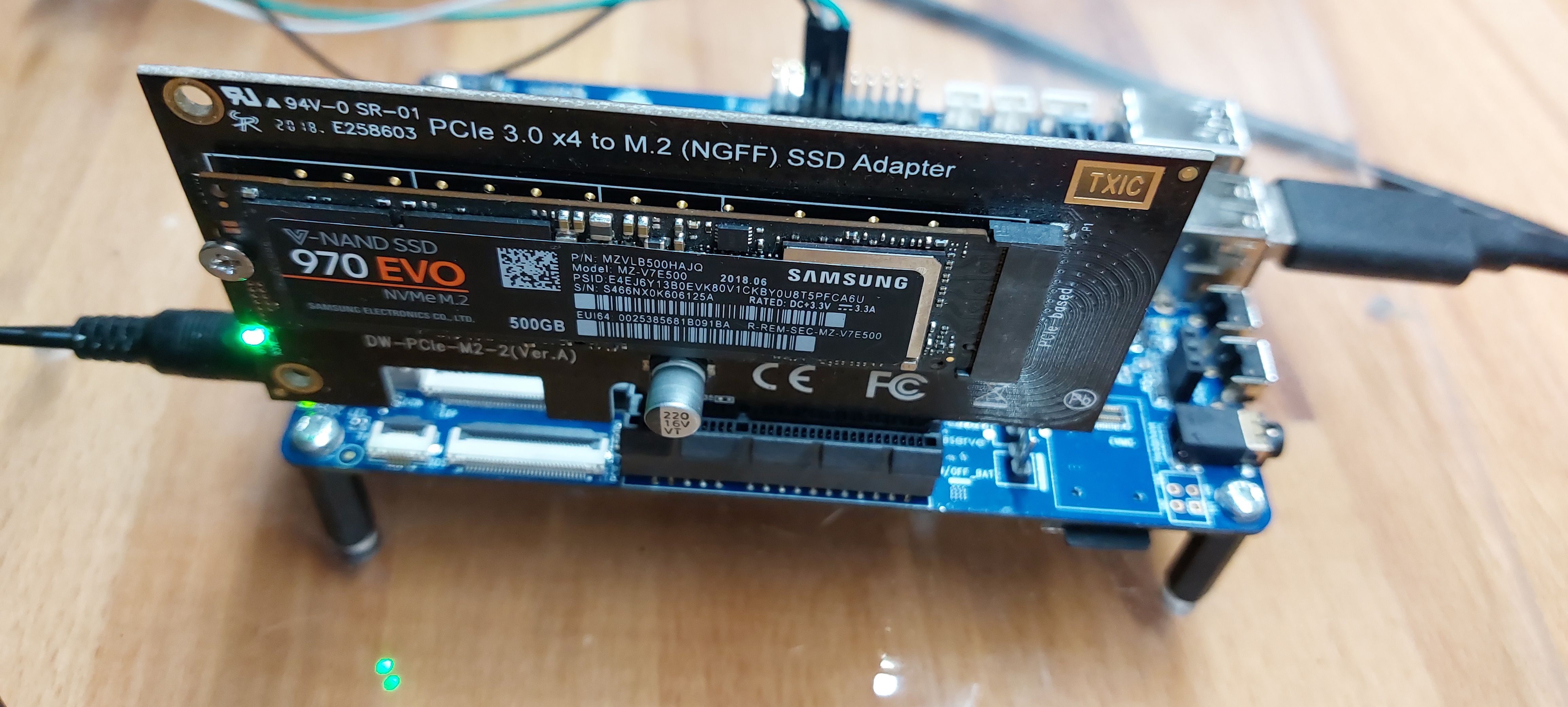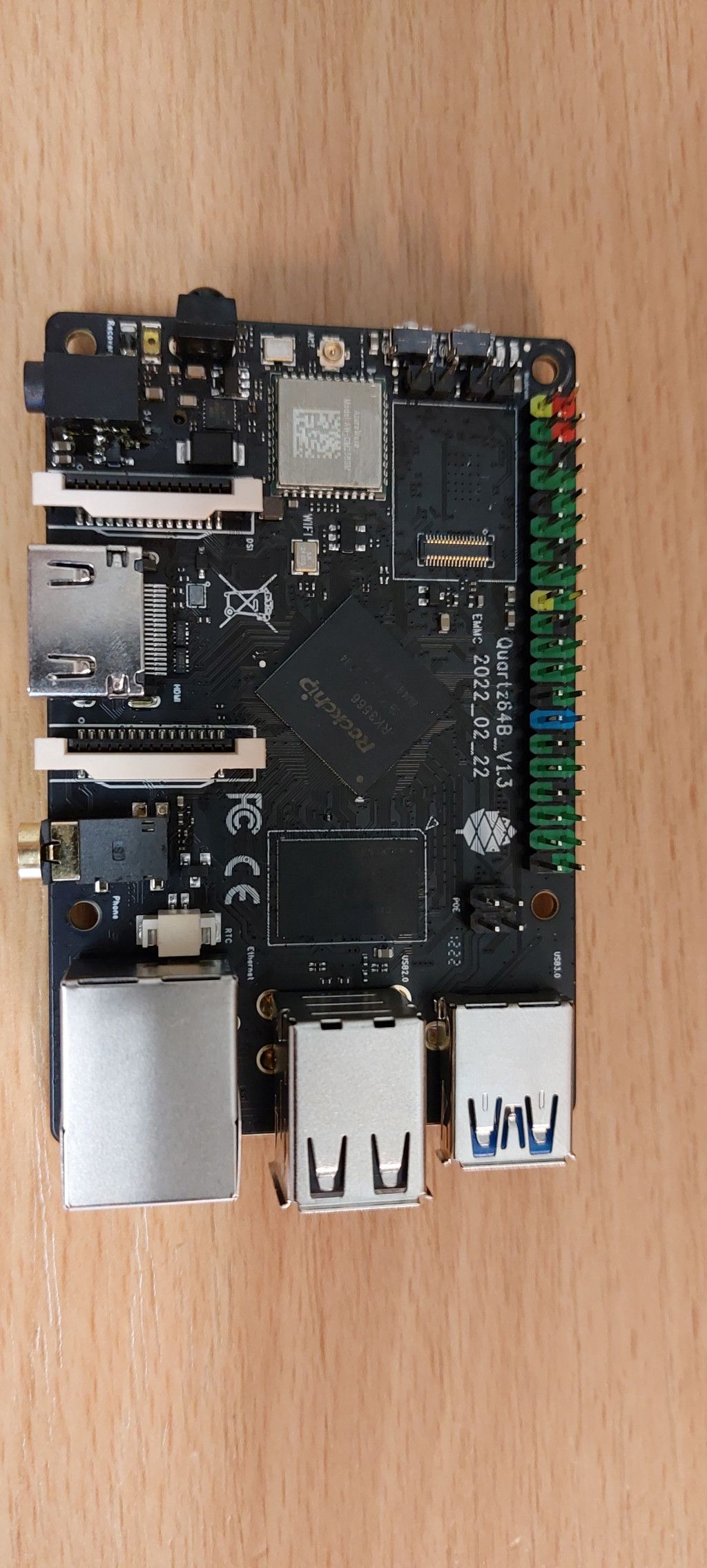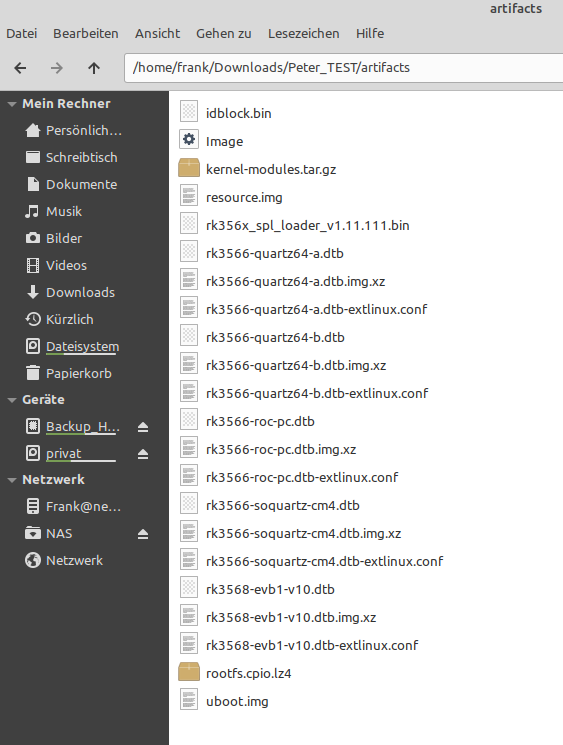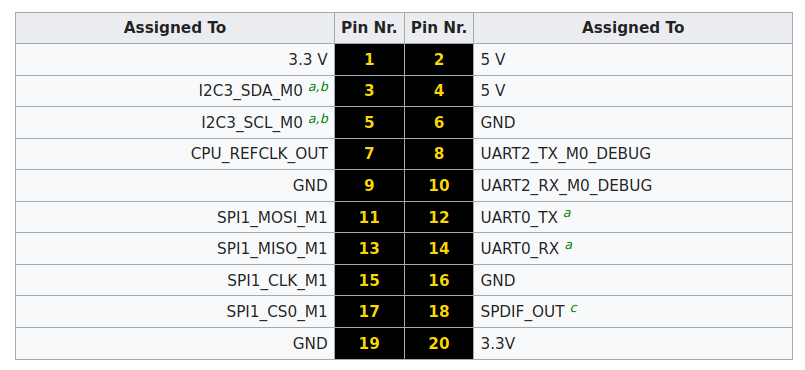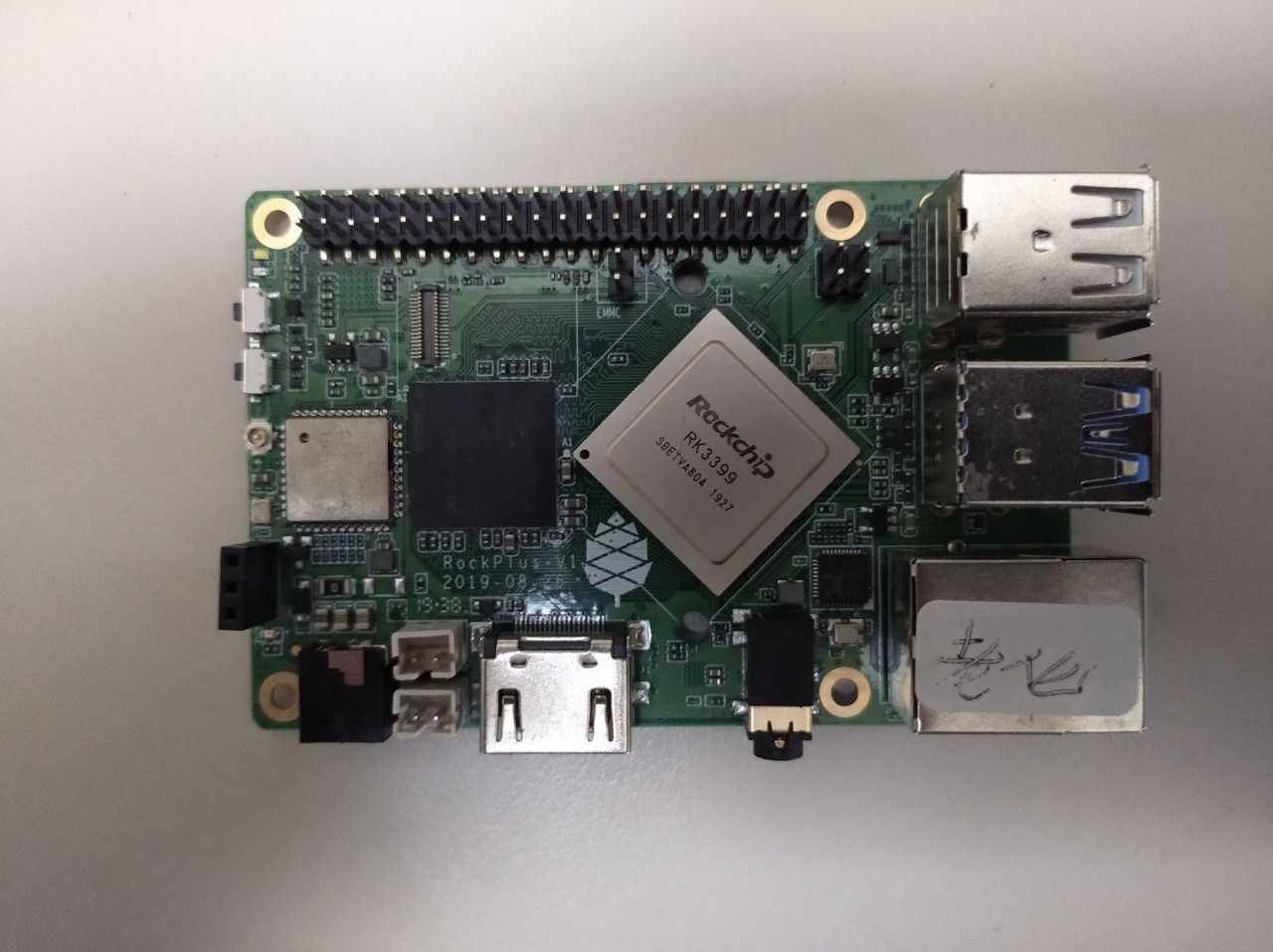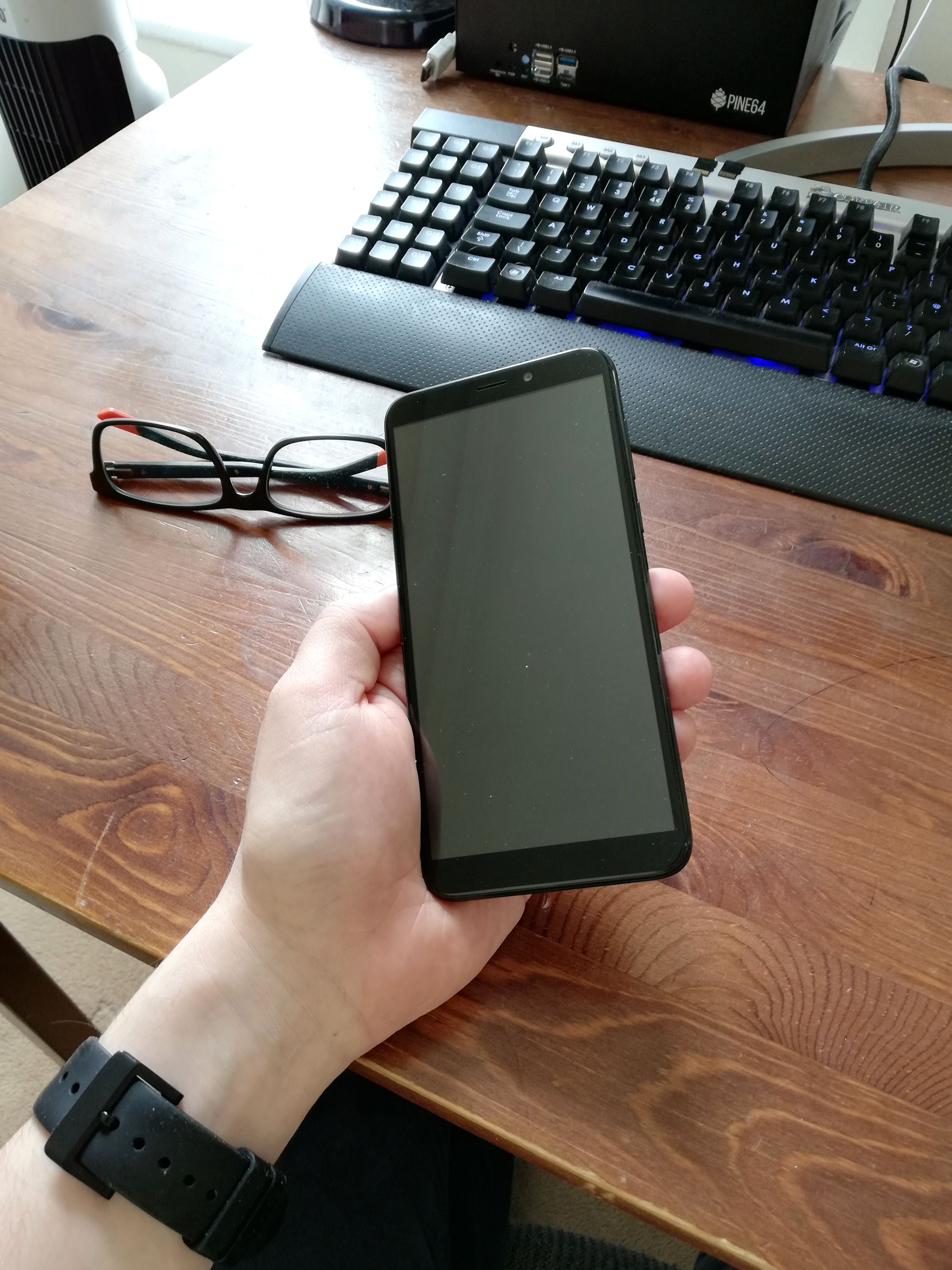Quartz64 - PCIe Schnittstelle
-
Ich habe ja schon ein wenig dazu geschrieben. Hier mal der direkte Vergleich zwischen einem ROCKPro64 und einem Quartz64.
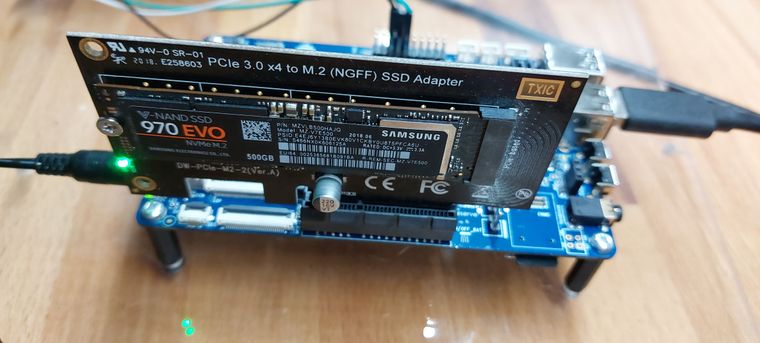
Hardware
Samsung 970 EVO 500GB mit PCIe Adapter
ROCKPro64
lspci
root@rockpro64:~# lspci 00:00.0 PCI bridge: Fuzhou Rockchip Electronics Co., Ltd RK3399 PCI Express Root Port 01:00.0 Non-Volatile memory controller: Samsung Electronics Co Ltd NVMe SSD Controller SM981/PM981Und aus dem ausführlichen Teil, also lspci -vvv
LnkSta: Speed 5GT/s, Width x4, TrErr- Train- SlotClk+ DLActive- BWMgmt- ABWMgmt- Kernel driver in use: nvme Kernel modules: nvmedd
root@rockpro64:~# dd if=/dev/zero of=test bs=512k count=2048 oflag=direct 2048+0 Datensätze ein 2048+0 Datensätze aus 1073741824 bytes (1,1 GB, 1,0 GiB) copied, 1,24522 s, 862 MB/sQuartz64
lspci
[frank@quartz64 ~]$ lspci 00:00.0 PCI bridge: Rockchip Electronics Co., Ltd RK3568 Remote Signal Processor (rev 01) 01:00.0 Non-Volatile memory controller: Samsung Electronics Co Ltd NVMe SSD Controller SM981/PM981/PM983Und aus dem ausführlichen Teil, also lspci -vvv
LnkSta: Speed 5GT/s (downgraded), Width x1 (downgraded) Kernel driver in use: nvme Kernel modules: nvmedd
[root@quartz64 tmp]# dd if=/dev/zero of=test bs=512k count=2048 oflag=direct 2048+0 Datensätze ein 2048+0 Datensätze aus 1073741824 Bytes (1,1 GB, 1,0 GiB) kopiert, 3,51793 s, 305 MB/sFazit
Wir sehen also, das die PCIe- Schnittstelle, auf dem Quartz64, nicht mit so vielen Lanes an die CPU angeschlossen ist, wie auf dem ROCKPro64. Das sieht man auch deutlich an der Schreibgeschwindigkeit.
-
 F FrankM verschob dieses Thema von Hardware am
F FrankM verschob dieses Thema von Hardware am
-
-
-
-
-
Quartz64 - USB3 oder SATA?
Verschoben Quartz64 - A -
-
-
